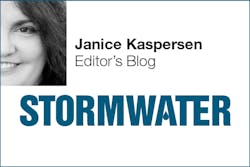
Okay, let’s look at this one more time, but from a different angle: I’ve been beating the plastic drum lately, writing about such things as single-use plastic straws and the potential bans on them that some jurisdictions—possibly the entire European Union—are considering. An article in the March 3 Economist is taking a different view of the situation. Yes, there’s a lot of plastic out there, and yes, it’s breaking down into smaller pieces that can be easily ingested by fish and other organisms, the article says—but it’s not so bad, really, compared to other types of pollution.
“If a comprehensive league-table of environmental ills existed—which it does not—plastics would not top it,” says the article.
It offers up a number of statistics: Worldwide, we produce about 380 million tons of plastic each year (up from a mere 2 million tons half a century ago); only about 9% is recycled, and another 12% is incinerated, although that’s becoming an increasingly unattractive option. Yet plastic accounts for only about 10% of the solid waste we discard. “Whereas filthy air kills 7m people a year, nearly all of them in low- and middle-income countries, plastic pollution is not directly blamed for any [deaths].”
Water polluted by excess fertilization—another drum I’ve beaten here often enough—accounts for far more in environmental costs, up to $800 billion a year by some estimates, than the social and environmental costs of plastic pollution—roughly $139 billion, even when you take into account things like lost tourism because of unsightly plastic waste, the effects on fisheries, and the greenhouse gases released in the production and transport of plastic goods. If we try to calculate the effects of producing and using less plastic, we need to consider what we might use instead; some materials are heavier and therefore costlier (in money and carbon emissions) to transport. Without plastic packaging, we would have more food spoilage and food waste—another serious environmental concern that MSW Management’s editor has addressed here and the magazine has covered in a series of articles.
In addition, the Economist article says, there just isn’t much evidence to show that most aquatic species (coral is the exception) are being seriously damaged by their exposure to plastic, or even that plastic particles eaten by fish and then potentially by humans actually harm the fish, or us. The polymers that make up plastics are chemically inert (although additives like phthalates and bisphenol-A do have some effects on living organisms).
But plastic is visible, and it’s a popular topic. The article reports that nine in 10 Europeans surveyed worry about the environmental effects of plastic and more than half try to avoid using plastic bags, yet only one in 10 thinks about fuel efficiency when buying a new car. (I find that last part, about the cavalier attitude toward fuel, hard to believe, unless most people surveyed believe that all new cars available to them are about equal in efficiency and therefore base their decisions on other factors.)
“As scientists never tire of repeating, more research is needed,” says the article. “While researchers get a better handle on the science, campaigners badger politicians and browbeat consumers to kick the polymer habit. They often invoke the precautionary principle. If the impact of something is uncertain but could be great, the argument goes, better forestall it just in case. As the proliferation of plastic bans and strategies suggests, they are having some success.”
Maybe the catalyst that will finally change how we deal with plastic—whether to produce less, recycle more, or take some other action to capture it and keep it out of the environment—will be China’s decision to accept less of it for recycling. (MSW Management has also covered this issue extensively—see editor Arturo Santiago’s blog here, for example.)
What do you think? Is the concern over plastic waste another example of the “Prius fallacy,” in which we congratulate ourselves for taking steps to protect the environment that might be, under closer scrutiny, not so effective—or at least not as useful as other things we could be doing instead?
About the Author
Janice Kaspersen
Janice Kaspersen is the former editor of Erosion Control and Stormwater magazines.